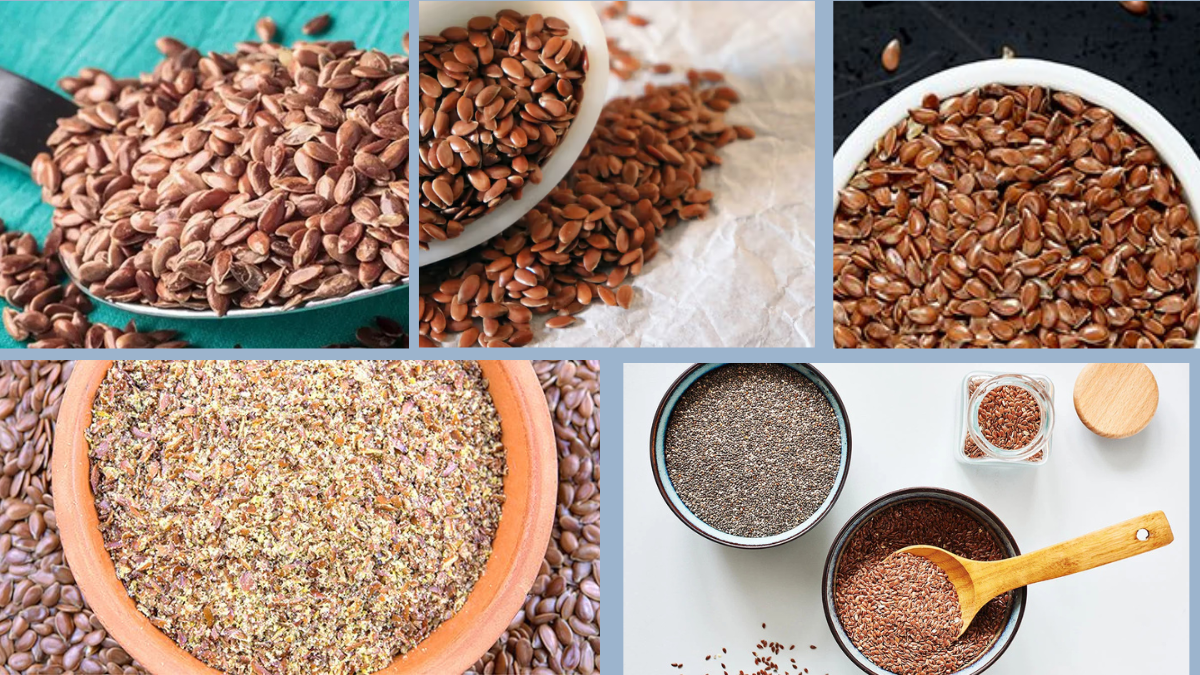Why Digestion Matters
A healthy digestive system is the cornerstone of overall wellness. It’s responsible for breaking down food, absorbing nutrients, and eliminating waste. Poor digestion can lead to uncomfortable symptoms like bloating, gas, constipation, and fatigue—and may contribute to more serious issues over time, including inflammation, nutrient deficiencies, and even mood imbalances.
Fortunately, nature provides us with gentle and effective tools to support gut health—and flaxseeds are one of the most powerful.
The Digestive Power of Flaxseeds
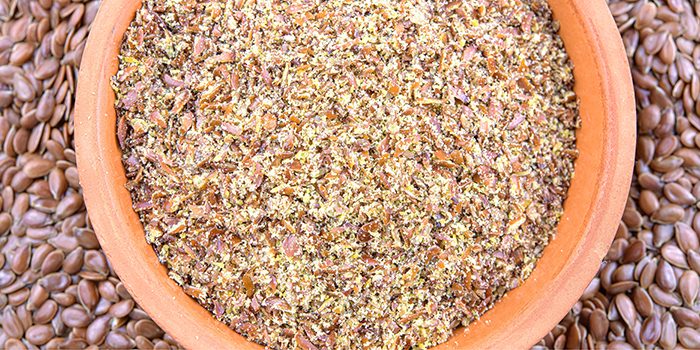
Flaxseeds (also known as linseeds) are small, golden or brown seeds that have been used for centuries in traditional medicine. But modern science confirms their status as a digestive superfood, especially for those following a vegetarian or plant-based diet.
Here’s why flaxseeds are so beneficial for digestion:
1. High in Fiber
Just one tablespoon of ground flaxseed contains around 3 grams of fiber, including both soluble and insoluble types.
- Soluble fiber absorbs water to form a gel-like substance, which slows digestion, stabilizes blood sugar, and feeds beneficial gut bacteria.
- Insoluble fiber adds bulk to stool, helping food pass through the digestive tract more efficiently and preventing constipation.
2. Natural Laxative Effect
Flaxseeds help promote regular bowel movements by increasing stool bulk and softening texture. This makes them ideal for those struggling with constipation—without the need for harsh chemical laxatives.
3. Prebiotic Properties
Flax contains compounds that act as prebiotics—non-digestible fibers that nourish the beneficial bacteria in your gut. A healthy, balanced microbiome is crucial for smooth digestion, immunity, and inflammation control.
4. Anti-Inflammatory Omega-3s
Flaxseeds are the richest plant-based source of alpha-linolenic acid (ALA), a type of omega-3 fatty acid. Omega-3s help reduce inflammation in the gut lining and support conditions like IBS or inflammatory bowel disease.
Whole vs. Ground Flaxseeds: What’s Better for Digestion?
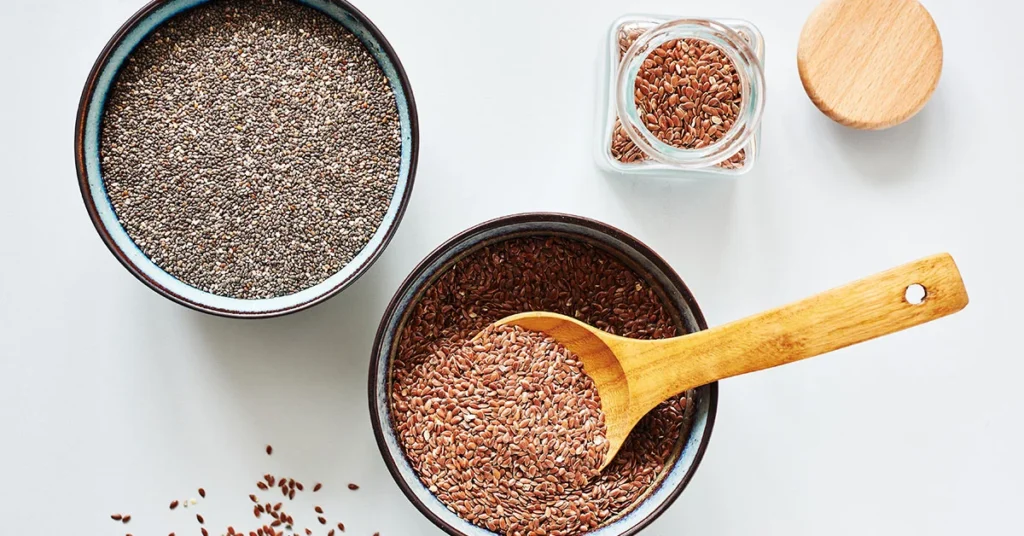
While both forms are healthy, ground flaxseeds (also called flaxseed meal) are far superior when it comes to supporting digestion.
Why ground is better:
- Whole flaxseeds often pass through your body undigested, meaning you miss out on their fiber and nutrients.
- Grinding them helps release the fiber, omega-3s, and lignans, making them easier for your body to absorb.
Tip: Always store ground flaxseed in the fridge or freezer to prevent the oils from going rancid.
How to Add Flaxseeds to Your Diet for Digestive Support
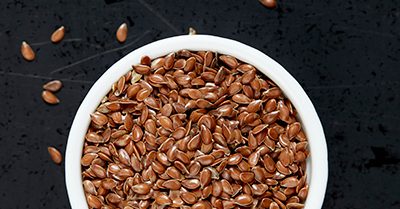
Here are easy and effective ways to enjoy the benefits of flax daily—without needing animal-based foods or supplements:
1. Add to Oatmeal or Porridge
Stir 1–2 tablespoons of ground flaxseed into your morning oats. It adds a subtle nutty flavor and blends beautifully into warm, comforting meals.
Bonus: Combine with chia seeds, cinnamon, and berries for a triple gut-boosting effect.
2. Blend into Smoothies
Flaxseeds thicken smoothies while providing fiber and healthy fats. Add a tablespoon of ground flax to your favorite combo—think banana, spinach, oat milk, and almond butter.
Pro tip: Flax pairs especially well with creamy ingredients like avocado or frozen mango.
3. Use in Baked Goods
Replace eggs in recipes using a “flax egg”:
1 tablespoon ground flaxseed + 3 tablespoons water, mix and let sit for 5 minutes.
It’s perfect for muffins, pancakes, or brownies—and adds a subtle nutritional boost.
4. Sprinkle on Salads or Roasted Veggies
Give your meals a fiber boost by sprinkling 1 tbsp of ground flax over:
- Salads
- Grain bowls
- Roasted sweet potatoes
- Steamed greens
It blends in easily and adds a slight crunch without overwhelming the flavors.
5. Make Flaxseed Tea or Soaked Gel
For extra gentle digestive support, try soaked flax:
- Add 1 tbsp of whole flaxseed to 1 cup of water
- Let sit overnight
- Drink the water (and optionally eat the gel) in the morning
This method is especially useful for relieving occasional constipation or soothing the gut lining.
6. Add to Energy Balls or Snacks
Mix ground flaxseed into no-bake energy bites with dates, oats, nut butter, and cinnamon. These are great for on-the-go digestion support.
7. Stir into Plant-Based Yogurt or Non-Dairy Milk
If you enjoy dairy-free yogurt or almond/oat milk, flax blends easily into the mix. Combine with berries and a sprinkle of granola for a gut-friendly treat.
How Much Flaxseed Should You Eat Daily?
Start slow, especially if your diet is currently low in fiber. Sudden increases can cause bloating or gas.
Suggested amount:
- Start with 1 tablespoon per day
- Gradually work up to 2 tablespoons for maximum digestive benefits
Be sure to drink plenty of water, as fiber needs liquid to work effectively in the gut.
Common Mistakes to Avoid
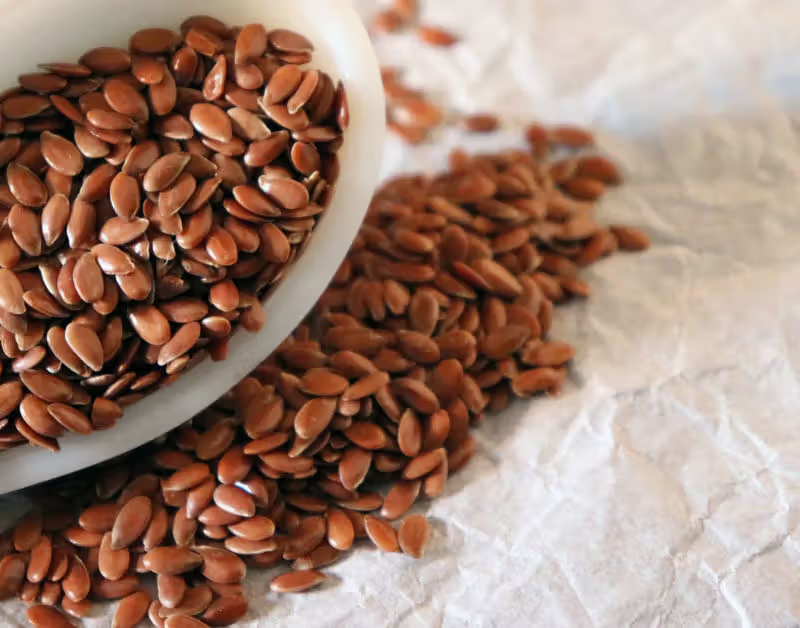
While flax is simple to use, here are a few things to keep in mind:
- Avoid eating dry flax alone. It can cause stomach discomfort. Always mix it into food or liquids.
- Don’t rely on flax alone. It’s a fantastic gut aid, but aim to get fiber from a variety of plant-based sources—fruits, veggies, legumes, and whole grains.
- Use ground flax quickly. Ground flax can go rancid fast due to its oils. Store in the fridge in an airtight container and use within 1–2 weeks.
Final Thoughts: A Small Seed with Big Benefits
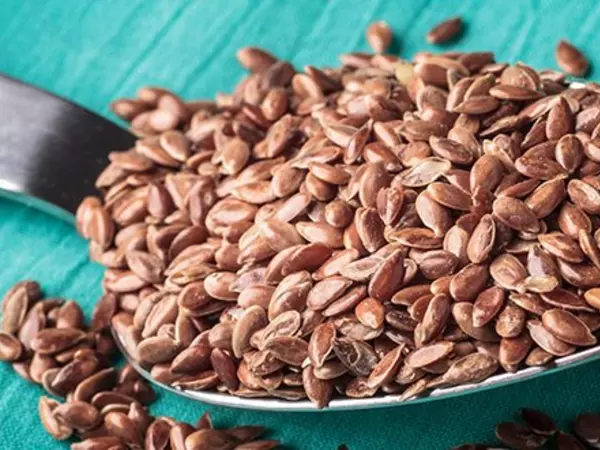
Flaxseeds are proof that good things come in small packages. With just a tablespoon or two a day, you can dramatically improve digestion, reduce inflammation, and support your gut microbiome—naturally and affordably.
Perfect for vegetarians, vegans, or anyone looking to eat more whole, plant-based foods, flaxseeds are a must-have in your pantry. They’re easy to add to your daily routine, require no fancy equipment, and offer big results over time.
Looking for a sample flax-friendly meal plan or printable shopping guide? Just let me know—I’d be happy to create one for you!
